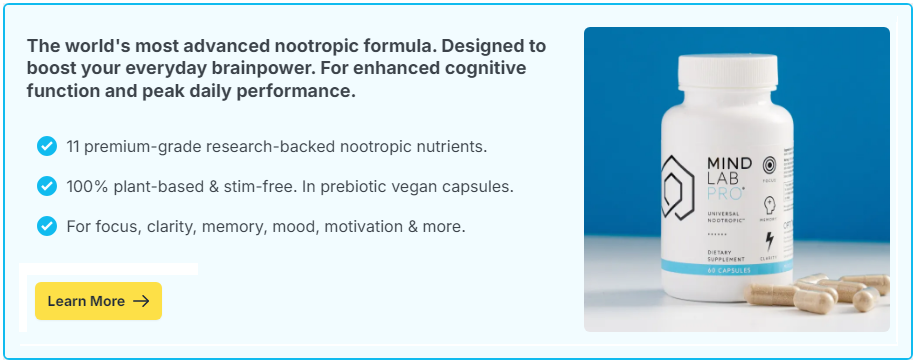
Chronic stress is a modern epidemic, affecting millions of people worldwide. The constant demands of work, social obligations, financial pressures, and digital overload have left many individuals struggling with anxiety, burnout, poor sleep, and cognitive decline. Over time, chronic stress can lead to serious health problems, including hormonal imbalances, immune dysfunction, and neurodegenerative diseases.
One of the most well-researched natural remedies for stress management is Ashwagandha (Withania somnifera). Used in Ayurvedic medicine for centuries, this adaptogenic herb is known for its ability to balance cortisol levels, improve resilience to stress, and enhance overall well-being. But is Ashwagandha really effective for managing chronic stress? Can it help restore balance to an overworked nervous system?
Contents
What Is Ashwagandha?
Ashwagandha is a powerful adaptogenic herb traditionally used in Ayurvedic medicine to enhance vitality, reduce stress, and improve overall health. It is often referred to as “Indian Ginseng” due to its rejuvenating properties.
Key Bioactive Compounds in Ashwagandha:
- Withanolides – The primary active compounds that provide anti-stress and neuroprotective effects.
- Alkaloids – Contribute to Ashwagandha’s calming properties.
- Saponins – Support immune function and cellular repair.
Because of its adaptogenic properties, Ashwagandha helps the body adapt to stress by modulating the hypothalamic-pituitary-adrenal (HPA) axis, which regulates cortisol production and the body’s fight-or-flight response.
How Ashwagandha Helps with Chronic Stress
Chronic stress affects nearly every system in the body, from the nervous system to the endocrine system. Ashwagandha targets multiple pathways involved in the stress response, helping to restore balance.
Lowers Cortisol Levels
Cortisol is the body’s primary stress hormone, responsible for regulating metabolism, inflammation, and blood sugar. Chronic stress can cause elevated cortisol levels, leading to anxiety, weight gain, sleep disturbances, and brain fog.
Research suggests that Ashwagandha can significantly lower cortisol levels, helping to reduce the negative effects of prolonged stress.
Enhances GABA and Serotonin Activity
Ashwagandha supports the production of GABA (gamma-aminobutyric acid), an inhibitory neurotransmitter that promotes relaxation and reduces anxiety. It also influences serotonin levels, improving mood and emotional stability.
Reduces Anxiety and Promotes Emotional Resilience
Multiple studies have shown that Ashwagandha has anxiolytic (anti-anxiety) effects, helping individuals feel calmer and more emotionally stable, even in high-pressure situations.
Improves Sleep Quality
Chronic stress often leads to insomnia and disrupted sleep cycles. Ashwagandha may help by regulating the nervous system and promoting deep, restorative sleep.
Supports Brain Function and Cognitive Health
Chronic stress can negatively impact cognitive function, leading to brain fog, forgetfulness, and difficulty concentrating. Ashwagandha has been shown to enhance memory, processing speed, and mental clarity.
Scientific Research on Ashwagandha and Chronic Stress
Several clinical studies have examined the effects of Ashwagandha on stress and anxiety:
- A 2012 study in Indian Journal of Psychological Medicine found that Ashwagandha reduced cortisol levels by 27% and significantly improved stress resilience in participants with chronic stress.
- A 2019 clinical trial in Medicine showed that Ashwagandha supplementation decreased anxiety and improved sleep quality in individuals with stress-related insomnia.
- A 2021 study in Journal of Ethnopharmacology reported that Ashwagandha enhanced cognitive function and reduced mental fatigue in people experiencing work-related stress.
These findings suggest that Ashwagandha is a promising natural solution for managing chronic stress and its cognitive effects.
How to Take Ashwagandha for Chronic Stress
Recommended Dosage
- For Stress and Anxiety: 250–600 mg per day.
- For Cortisol Regulation: 300–600 mg per day.
- For Sleep Support: 300–500 mg before bed.
Best Time to Take Ashwagandha
- Morning: To enhance stress resilience throughout the day.
- Evening: To promote relaxation and sleep.
Best Form of Ashwagandha
- KSM-66 Extract: A highly concentrated, full-spectrum extract.
- Sensoril Extract: A standardized extract known for its stress-reducing effects.
Potential Side Effects and Considerations
Ashwagandha is generally well tolerated, but some individuals may experience mild side effects.
Possible Side Effects:
- Digestive discomfort (nausea or upset stomach).
- Drowsiness (when taken in high doses).
- Lowered blood pressure (caution for those with hypotension).
Who Should Avoid Ashwagandha?
- Pregnant or breastfeeding women (lack of sufficient safety data).
- Individuals with autoimmune diseases (may stimulate immune activity).
- Those on thyroid medication (Ashwagandha may influence thyroid hormones).
How Ashwagandha Compares to Other Stress-Reducing Supplements
| Supplement | Primary Benefit | Best For |
|---|---|---|
| Ashwagandha | Reduces cortisol, improves resilience to stress. | Chronic stress and anxiety. |
| L-Theanine | Promotes relaxation without drowsiness. | Reducing stress while maintaining focus. |
| Rhodiola Rosea | Boosts energy and reduces mental fatigue. | High-stress environments and burnout prevention. |
Should you take Ashwagandha for chronic stress? Based on scientific research and traditional use, the answer is yes. Ashwagandha is one of the most effective adaptogenic herbs for reducing stress, balancing cortisol, and improving overall resilience.

